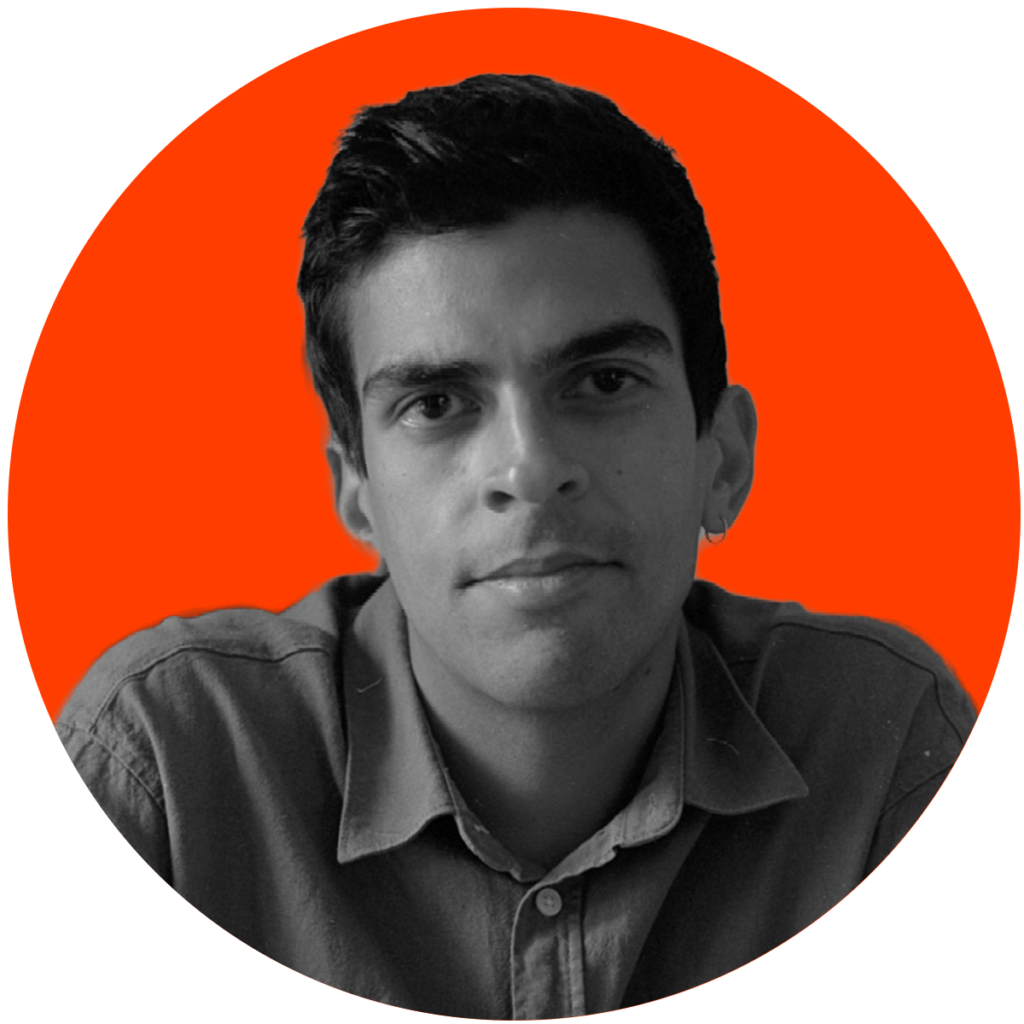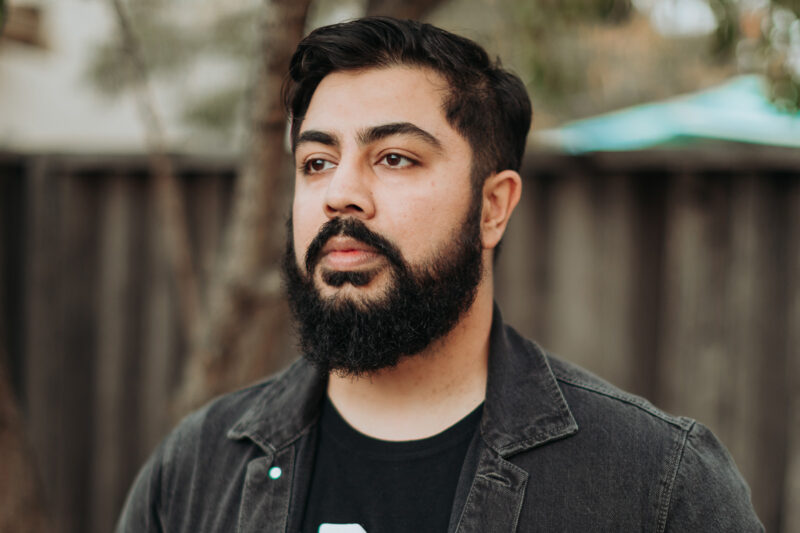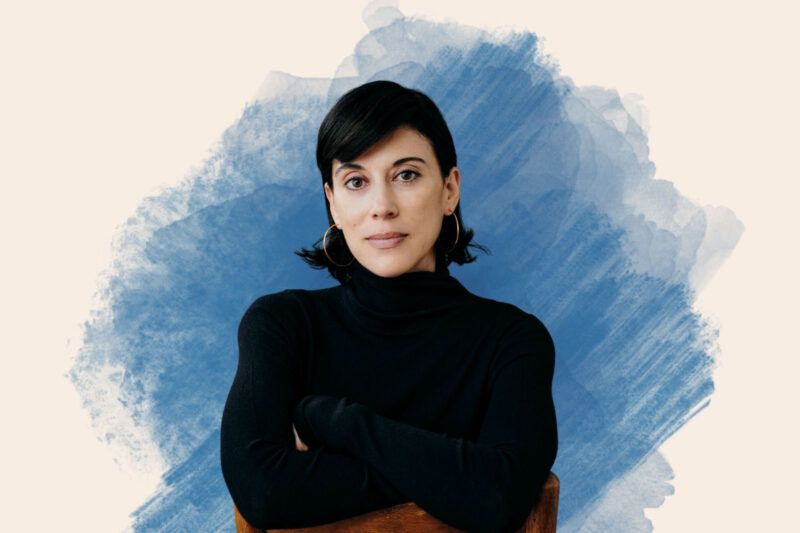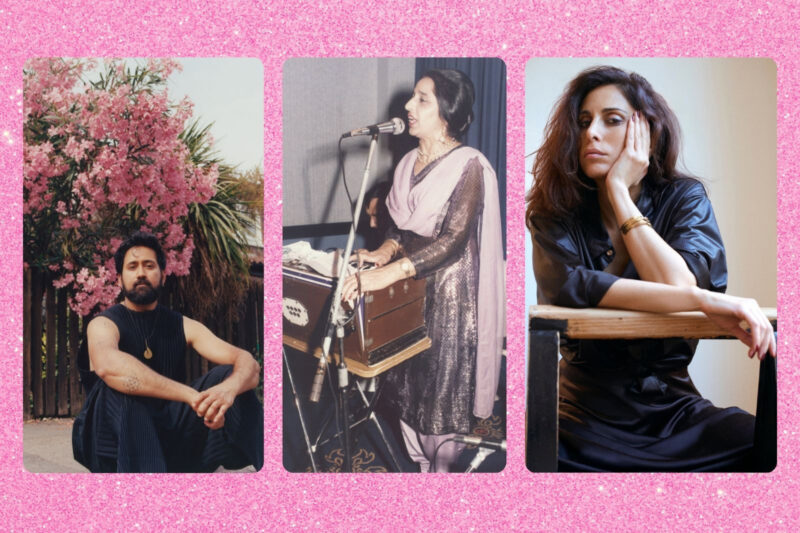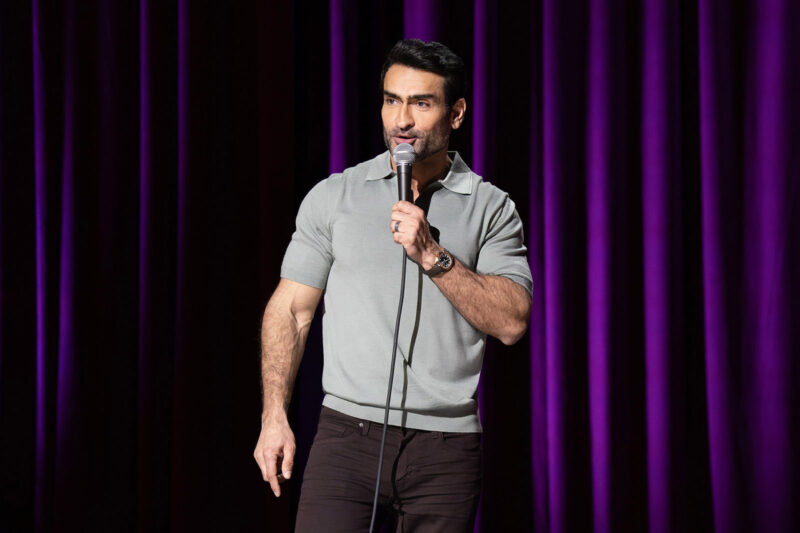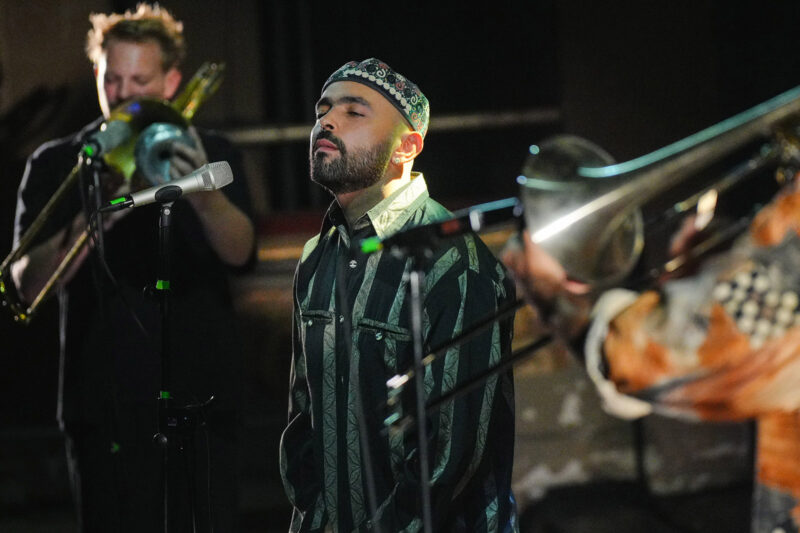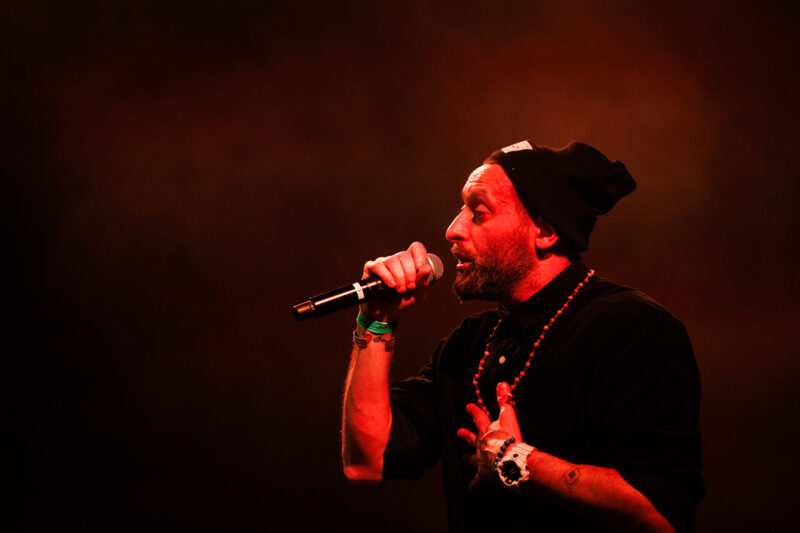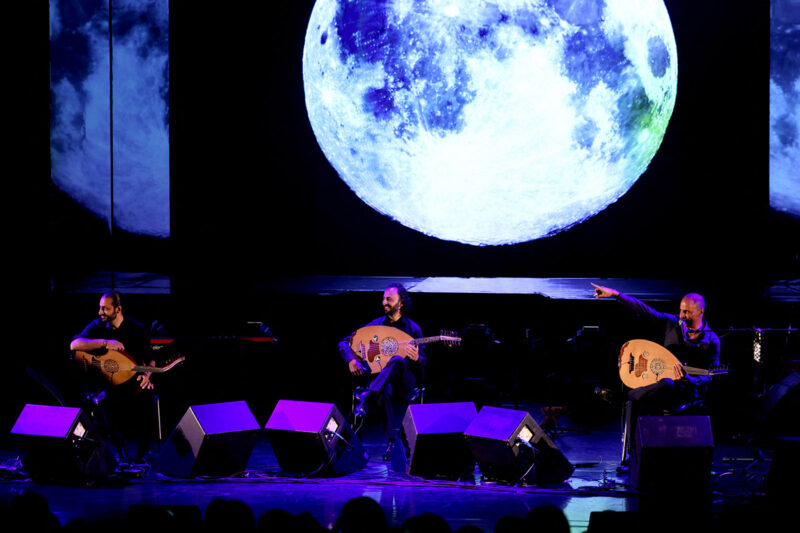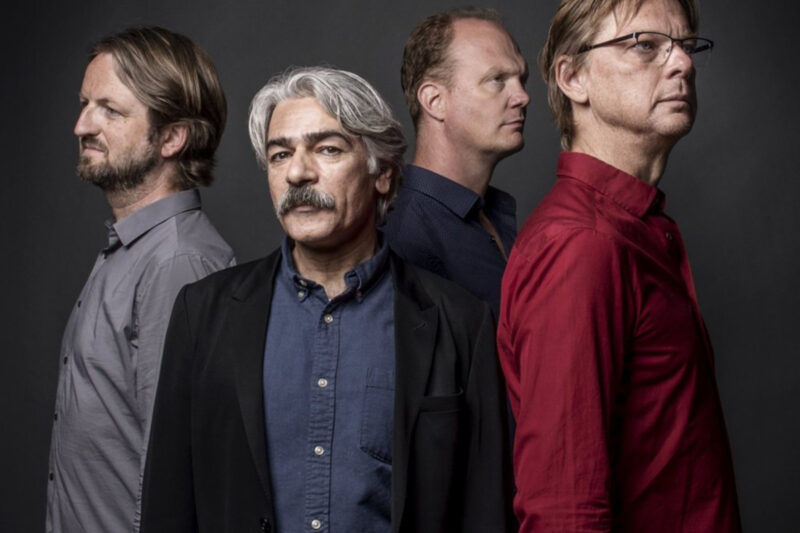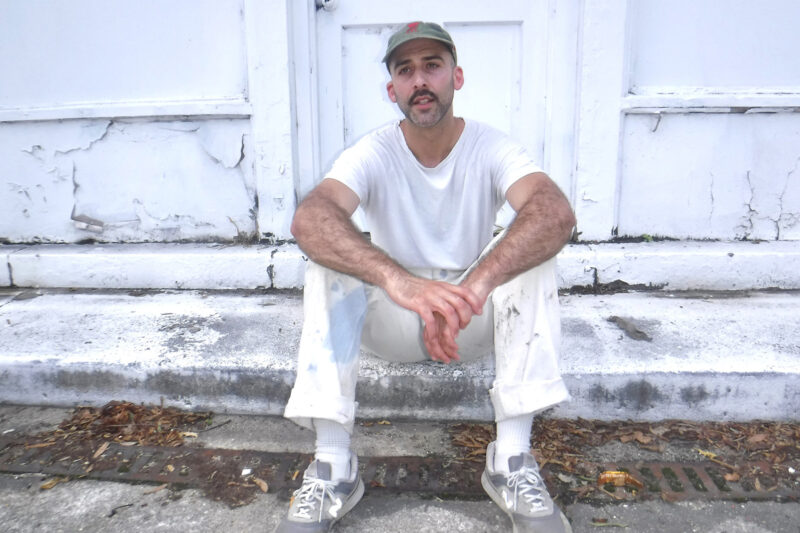Qais Essar: ‘Music is banned in Afghanistan. The quieter it gets there, the louder I have to be’
On two new albums, the boundary-breaking artist pushes the traditional rabab into uncharted territory

“My relationship with the rabab has been one of rebellion since the beginning,” says Qais Essar. “I’m rebelling against the image that the media has portrayed of Afghan culture, rebelling against the Taliban, who don’t allow it to be played, and rebelling even within the community by exploring different ways of presenting this instrument.”
Born and raised in Scottsdale, Arizona, to parents who emigrated from Afghanistan in the 1980s, Essar, 38, has been honing his mastery of the 19-stringed, lute-like instrument since the age of six. His dedication to the rabab is now documented in a range of innovative recordings.
Essar’s 2014 debut album The Green Language casts the the instrument in the role usually played by a vocalist, with intricately plucked melodies adorning a range of sweeping traditional compositions, while Tavern of Ruin (2016) and The Ghost You Love Most (2018) place it in increasingly unusual, modern contexts.
Having already set Afghanistan’s national instrument against harpsichord, Rhodes piano, kit drums and psychedelic reverb, it is clear that Essar enjoys subverting tradition. Now, on two new albums — Echoes of the Unseen, released on 11 October, and Mehfil Baby, on 1 November — he is pushing his vision in wildly divergent directions. Echoes offers a new suite of self-penned Afghan classical compositions and ragas, while Mehfil Baby blends the rabab with sparkling western pop.
“Tradition and innovation go hand in hand,” Essar says. “I don’t want to keep the rabab for antiquity, I want it to move forward and survive with the times. Keeping it in a conservative context is clipping its wings. With everything going on in Afghanistan now, where music is banned, the quieter it gets back home, the louder I have to be.”
Speaking via video call from a San Francisco hotel room, 10 dates into a 45-show tour of the US, Essar recalls the moment when he first began to understand the power of music to provide solace and the foundations of cultural identity to displaced communities.
“My earliest memories were of my parents playing Afghan music in the house. Every Friday we would get together with extended family to play and sing,” he says. “It was a way for our community to feel at home in a place that was not home. That was when I realised music could give survivors of trauma such calm.”
Essar was immediately drawn to the rabab and began studying both Afghan and western classical musical traditions as a young boy. However, it was in his teenage years, witnessing the rise in Islamophobia that swept across the US following the 9/11 attacks, that his plan for the instrument became clear.
“I remember a Sikh man was killed in Phoenix where I was growing up post-9/11,” he says. “The people who murdered him thought he was someone from my community, assuming it was everyone in beards and turbans who were a threat. There was a fever of nationalism and I felt like ‘one of them’. I took it upon myself that with any audience I faced from that point, I would dispel that misinformation. I wanted to reintroduce our people and culture and evolve Afghan music. I wanted a new wave of refugees to see their real selves in media and music, which I didn’t have growing up.”
While studying for a political science degree at Arizona State University, Essar sharpened his live performance skills by playing both electric guitar and rabab at dive bar gigs. He then threw himself into the writing and recording process for what would become The Green Language.
“I made the decision to not play the songs they played 100 years ago and be stuck in this loop, since I wanted to share the rabab beyond our people,” he says. “I knew I wanted to hear the rabab surrounded by the philharmonic or to hear it with indie rock and hip-hop. I wanted it to be enjoyed as a living instrument, not an antique.
“We don’t see the guitar as specific to one genre or people, as artists have always brought their own traditions to it. Why not do the same with the rabab? It’s a colour that can be used in any painting — something for everyone to expand their sonic palette with.”
With the dual release of his new albums, Essar continues to break boundaries and bring the rabab to new forms of music. Writing both records in tandem, he views the downtempo, ambient Echoes of the Unseen as a meditative companion to the ambitious vibrancy of Mehfil Baby.
Across seven compositions, Echoes draws upon the lineages of both Indian and Afghan classical music in a suite of ragas intended to evoke the calming, transitional feeling of dawn and dusk. Over gently undulating tabla rhythms and field recordings of insects chirping, Essar’s playing is languorous and lyrical, rather than the complex, staccato style favoured by traditional rabab performers. The 11 tracks of Mefhil Baby, meanwhile, traverse everything from the cinematic, Ennio Morricone-referencing lines of The Eccedentesiast to the wistful R&B melodies of Zephyr.
Closing out 2024 with a headline tour in Sydney before heading back to the US for additional dates, Essar’s mission to share the possibilities and potential of his instrument with the world shows no signs of slowing down. “There’s always someone at a show who is hearing the rabab for the first time,” he says. “I love being able to give them that experience. it’s a lifelong mission.”
Echoes of the Unseen will be released on 11 October via Worlds Within Worlds and Mehfil Baby will be released on 1 November via Ghost Songs.
 Newsletter
Newsletter

